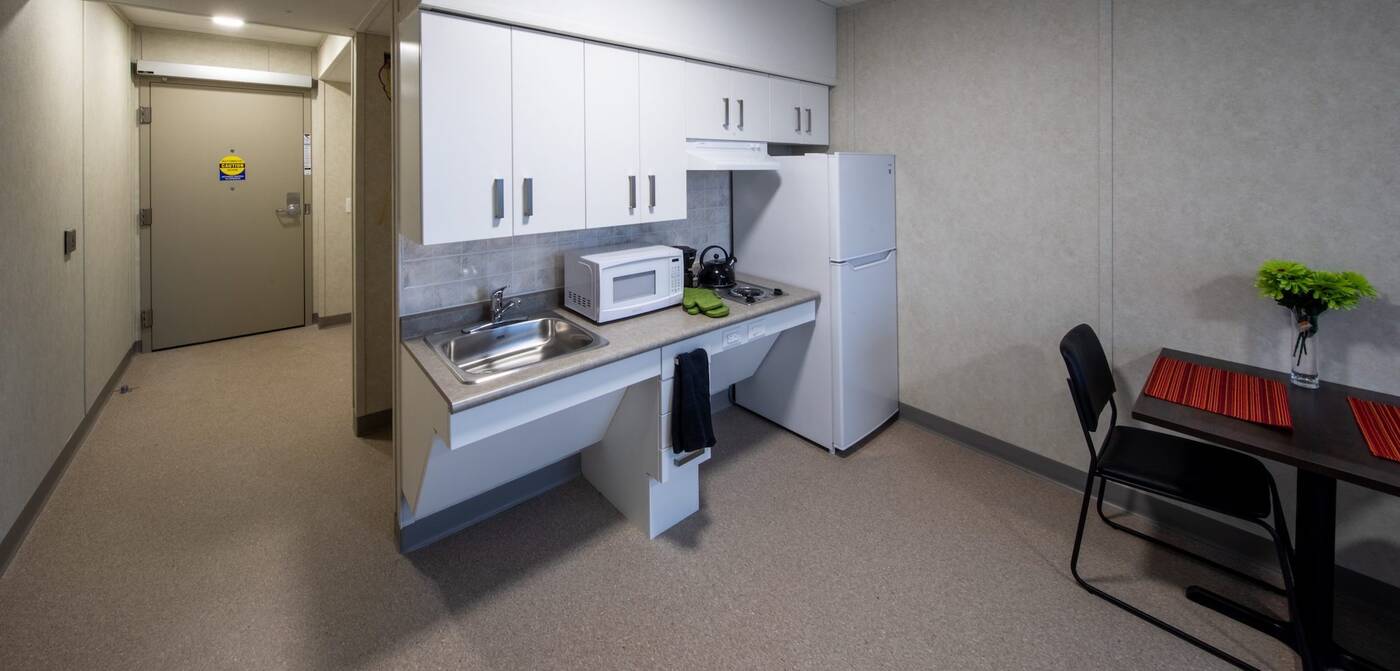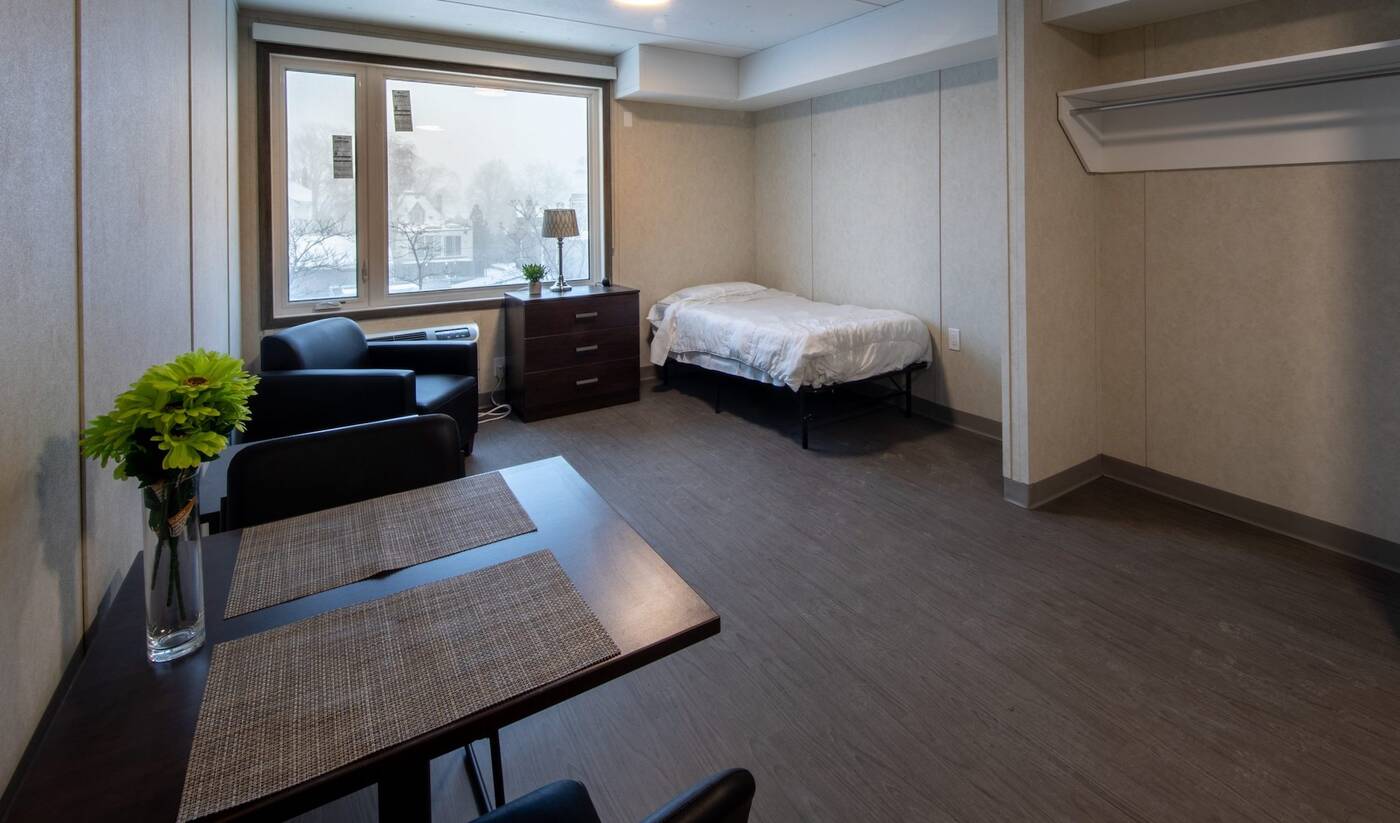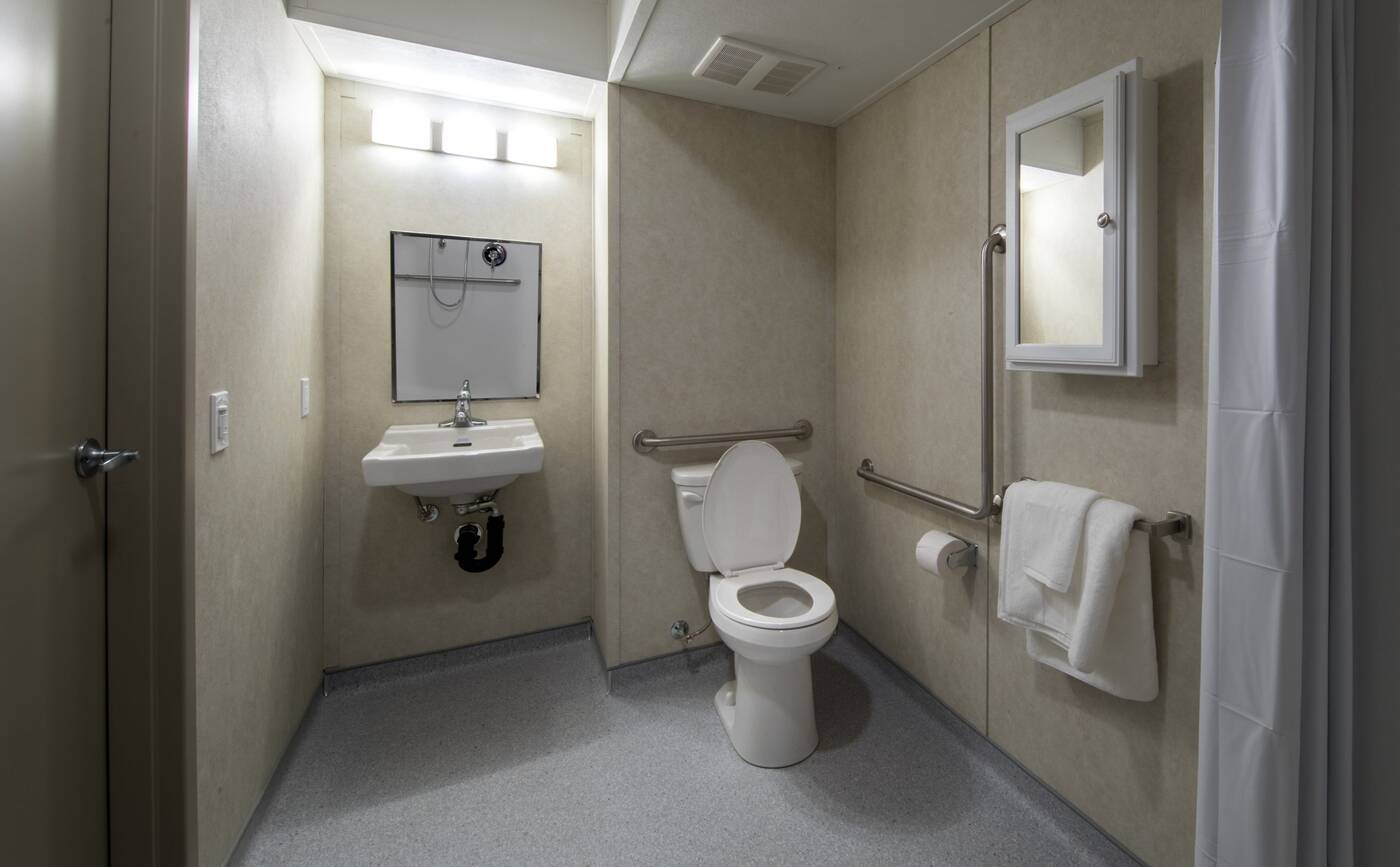
Toronto opens second modular supportive housing building for the homeless
Toronto's second modular supportive housing building for residents of the city that are experiencing homelessness is now open.
Mayor John Tory officially unveiled the new completed building at 321 Dovercourt Rd. earlier today, roughly one month after the city's very first modular housing building opened at 11 Macey Ave.
The Dovercourt building consists of 44 new studio apartments and the Macey Avenue development has 56. Combined, the two housing properties provide a total of 100 new affordable, supportive homes.
"Modular Housing has proven to be a quick and efficient way for our city to increase the supply of affordable housing in our city," said Tory in a statement. "These sites provide vulnerable residents in our city with a safe, stable and welcoming place to call home, and access to vital supports and services."
According to the city, modular housing is high-quality, pre-fabricated housing that is transported to the site for assembly — making it much quicker to construct than a typical residential development.
 The Dovercourt building stands at three-storeys high, and features a common room, a dining room, program space, administrative offices, and a commercial kitchen that can provide on-site meals for residents.
The Dovercourt building stands at three-storeys high, and features a common room, a dining room, program space, administrative offices, and a commercial kitchen that can provide on-site meals for residents.
Each studio apartment is approximately 300 square feet and comes with a built-in kitchen (including a stove top), microwave and fridge, and the homes are also furnished with a twin bed, lounge chair, dining table and chairs, and a dresser.
 Of the 44 homes at Dovercourt Road, the city says 25 per cent are accessible.
Of the 44 homes at Dovercourt Road, the city says 25 per cent are accessible.
Both modular housing sites will be operated by The Neighbourhood Group (TNG) and Cota Health, and these organizations will also provide support services as well as 24/7 on-site staffing at both locations.
 Services that will be provided to residents of the two buildings include housing stability and eviction prevention, connections with community supports and other services such as primary healthcare as well as volunteer and employment opportunities, and personal recovery relating to mental health and substance use challenges.
Services that will be provided to residents of the two buildings include housing stability and eviction prevention, connections with community supports and other services such as primary healthcare as well as volunteer and employment opportunities, and personal recovery relating to mental health and substance use challenges.
Residents will also recieve help with establishing personal crisis response plans, medication reminders and safe storage, harm reduction and relapse prevention counselling and support, help with daily living activities, rent collection and arrears payment plans, and support to help residents reconnect with friends and family.
The 100 new homes make up Phase I of the city's Modular Housing Initiative, and an additional 150 supportive homes will be delivered in 2021 as part of Phase II.
This initiative is one component of the city's HousingTO 2020-2030 Action Plan, which targets the approval of 40,000 new affordable rental homes with 18,000 supportive homes, including 1,000 modular homes, to help increase housing stability for Toronto residents over the next 10 years.
The city has also been allocated $203.3 million to create a minimum of 540 new permanent affordable homes, some of which will be modular, as part of the Canadian government's Rapid Housing Initiative (RHI).
"This new supportive modular housing build at 321 Dovercourt Rd. will provide much needed housing to our community, with the aim of helping those who have experienced homelessness and are exiting Toronto's shelter system," said Julie Dzerowicz, Davenport MP, in a statement.
"Through the federal government's National Housing Strategy, we're striving to reduce chronic homelessness by 50 per cent by 2027-2028. With all levels of government working together, we know we can achieve this ambitious goal."
Latest Videos
Latest Videos
Join the conversation Load comments







